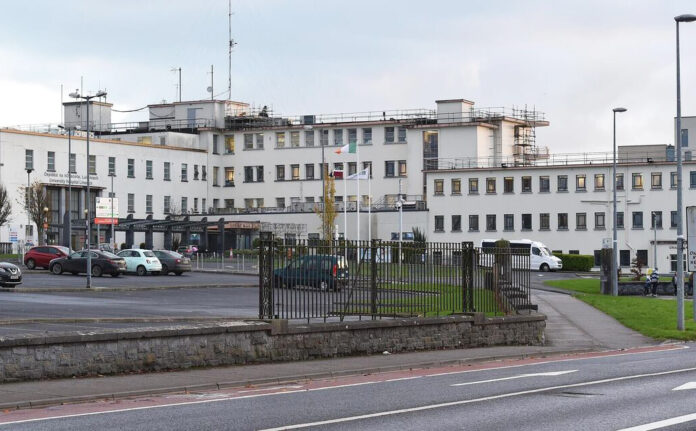
A UNIQUE study led by researchers at University of Limerick has uncovered antibiotic resistant bacteria behind hospital infection in sinks, showers, and toilets in University Hospital Limerick.
Knowing where the dangerous organisms live will help with finding the right drugs to combat them, researchers have said.
The nightmare of antimicrobial resistance (AMR) is that it affects thousands of people and presents a major challenge as most antibiotics are ineffective when these bacteria cause infection.
The research involved processing of the biofilm associated with 20 sinks, showers, and toilets from a ward that has been the location of repeated outbreaks of antibiotic-resistant bacteria.
The unique cross-sectional study was made possible when the ward underwent a refurbishment, permitting the researchers an opportunity to examine what was living in differing pipework elements in the hospital infrastructure.
As wastewater/plumbing systems across the wards are interconnected, this creates additional challenges for hospital infection control teams.
The analysis, called a ‘metagenome analysis’ because it is the study of the structure and function of the entirety of DNA sequences from these samples, allowed a complete picture of the bacterial communities present in the sink, shower, and toilet pipework.
It enabled profiling of all the antimicrobial resistance genes carried by the bacteria present.
By also processing samples from patients who were infected while admitted to the hospital ward, it was possible to confirm that the bacteria that infected them were very likely present in the wastewater system.
In a partnership with University Hospital Limerick and Queen’s University Belfast, the UL School of Medicine completed the extensive and unique study.
The new research, just published in the Journal of Hospital Infection, provides new insight and is the first study of this scale to look at wastewater and to correlate what is found there with outbreaks of infection.
Understanding what the infecting microbes are, where they are, and what drugs they are resistant to helps to put in place systems to prevent and control outbreaks of these infections.
Professor Colum Dunne, senior author and study lead who is Head of School and Foundation Chair and Director of Research at the UL School of Medicine, said: “The risks of antimicrobial or drug resistance in hospitals are recognised widely.”
“However, this is the first study to examine hospital wastewater at this scale, and to complete a comprehensive metagenomic profile of the bacteria that exist in the hospital pipework, while also correlating that with infection outbreaks.
“We are hugely appreciative of the openness and cooperation of hospital management and engineering, who are not only open to understanding the microbial communities resident in their water systems, but to also putting in place interventions based on this new knowledge.
“This unique study will lead to infection prevention and control improvements that will, ultimately, benefit patients who are admitted to hospital for treatment. The learnings from this are important internationally.”


